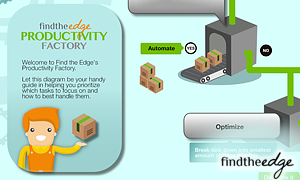 A great way of rewarding and retaining key employees without necessarily giving them a share of your profitable limited company is by using alphabet shares. These shares can also be used by the company owners or directors.
A great way of rewarding and retaining key employees without necessarily giving them a share of your profitable limited company is by using alphabet shares. These shares can also be used by the company owners or directors.
Normally a Small and Medium Enterprise (SME) limited company may have between one and one thousand shares. Usually these shares are “ordinary” shares which bestow voting, capital and income rights on the respective share owners or shareholders who own the shares. Typically these shareholders are the directors of the business themselves. The various rights can briefly be described as follows.
- Voting rights – these rights allow the shareholder to vote on certain decisions the company may need to make.
- Capital rights – these rights allow the shareholder to receive some value in the event of the company, or the shares in the company, being sold.
- Income rights – these rights allow the shareholder to receive a share of the profits of the company by way of a dividend payment.
With Alphabet shares, the company arranges for the issue of separate shares or separate batches of shares. These have income rights and certain (usually restricted) capital rights only. For identification purposes, these shares are labelled “A” “B” “C” etc, hence the term Alphabet shares.
Alphabet shareholders do not have voting rights and strictly therefore have no say in the actual running or direction of the company.
Under normal circumstances, if the company decides to pay a dividend, then it must pay this to all shareholders at the same rate and in accordance with the number of shares each shareholder owns. For example, if there are 2 shareholders in the business each owning 50 of the 100 shares in the company and a dividend of say £5,000 is voted, then each shareholder would receive the same rate of dividend in equal proportion ie £2,500 each.
This is often fine. However, what if you want to pay a dividend to just one shareholder or reward just one or several particular employees, say with a bonus for performance or loyalty? This is where Alphabet shares come in. A dividend could then be voted to just the owner of the “A” shares or just the owners of “A and “B” shares or in whatever permutation is appropriate. Dividends can be voted at different rates also. For example, the “A” shareholder could receive a £1,000 dividend and the “B” £500, even though they own the same number of shares.
A side benefit of dividends, as opposed to salary, is that there are no national insurance contributions payable on dividends. It’s therefore usually considerably cheaper for profitable SME limited companies to pay dividends rather than salary. This goes for business owners, directors and employees alike. The rate of tax on dividends is also less than on salary, often effectively tax-free in the hands of the shareholder.
The benefit to the owners and workforce can be tremendous. Together with a significant tax and national insurance saving, this can make a real difference to the performance of your business
If you would like to know more about Alphabet shares please get in touch below.





